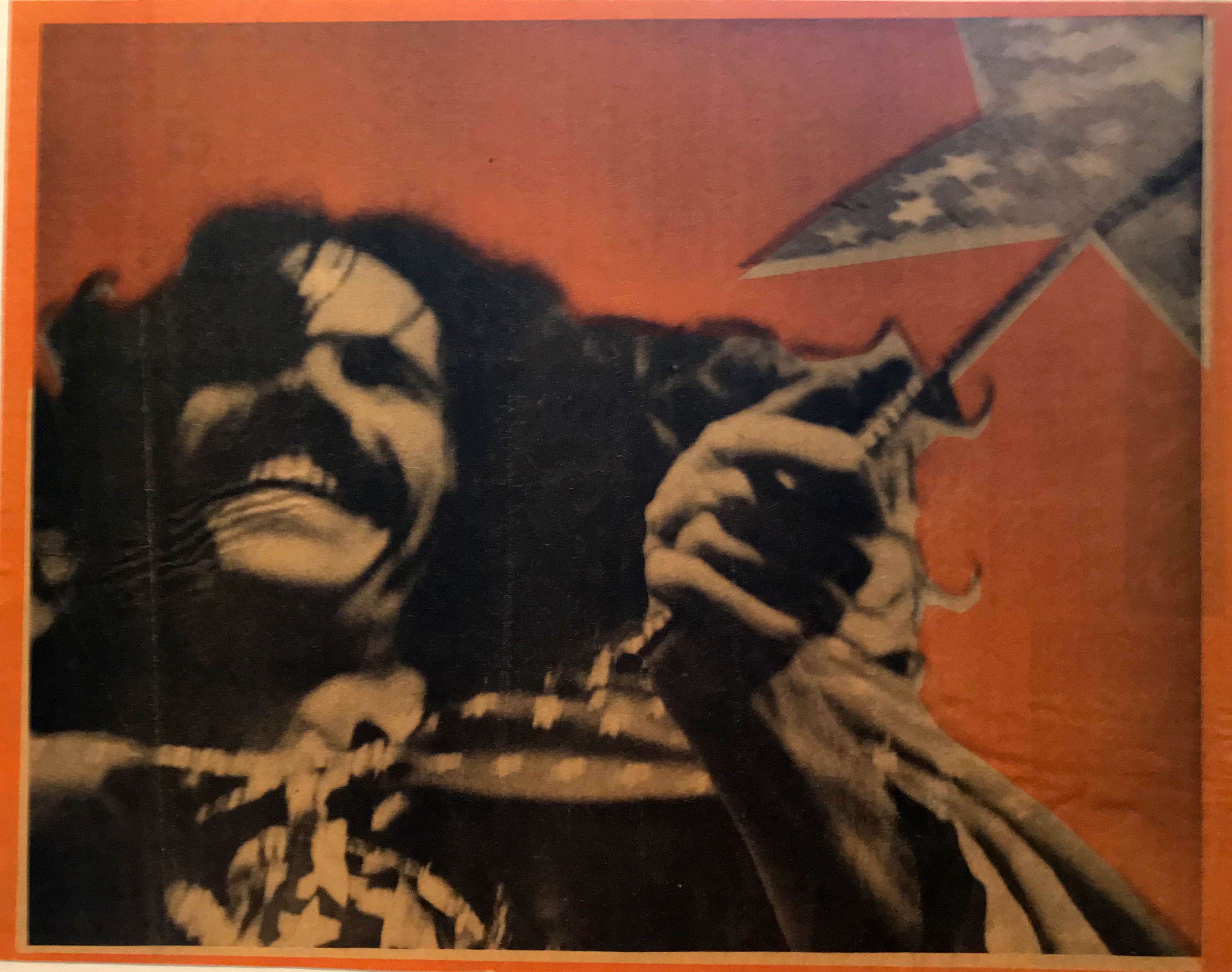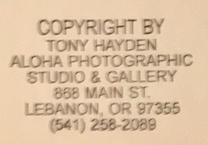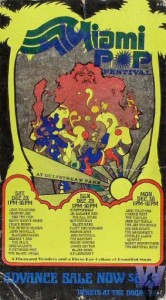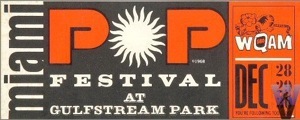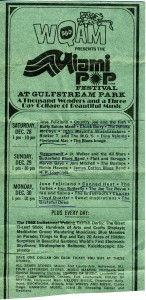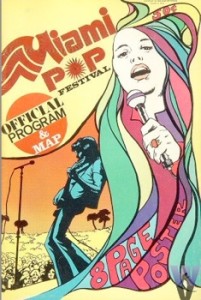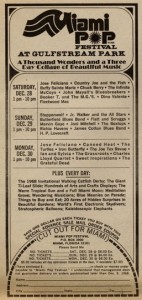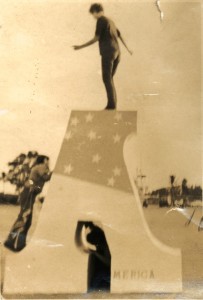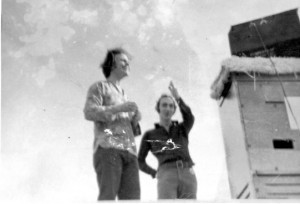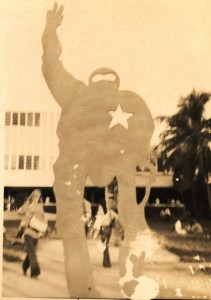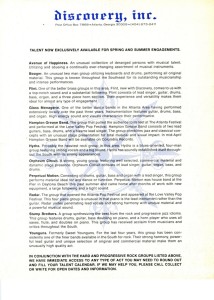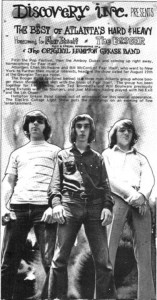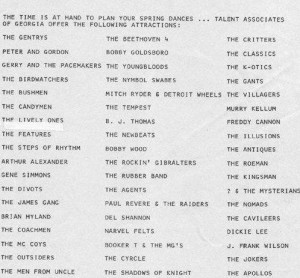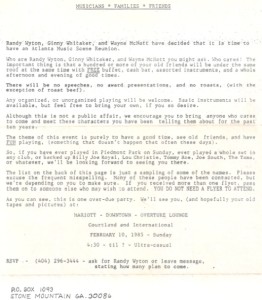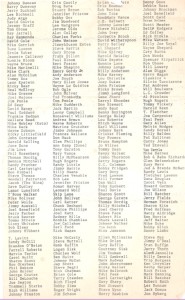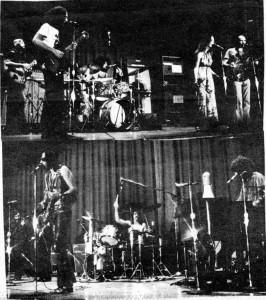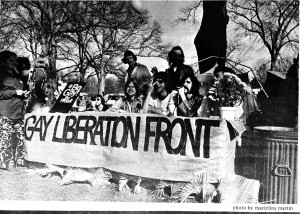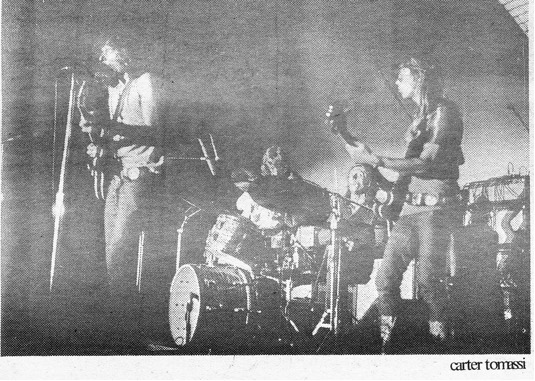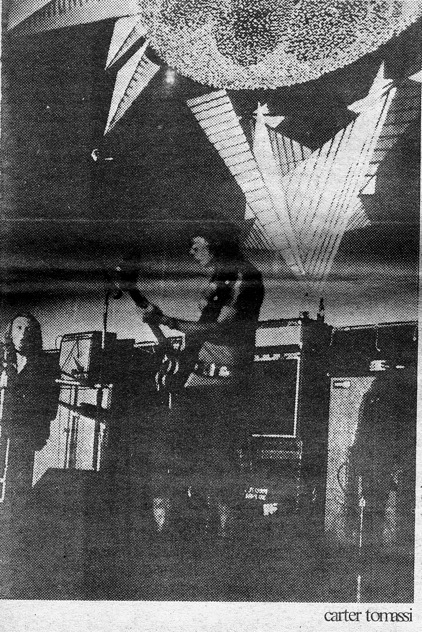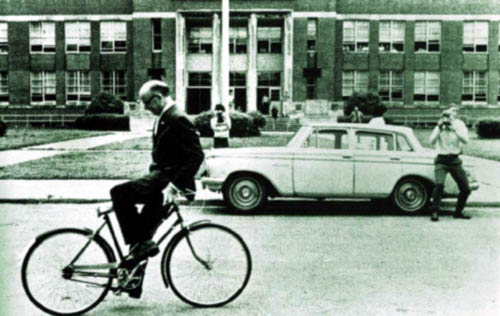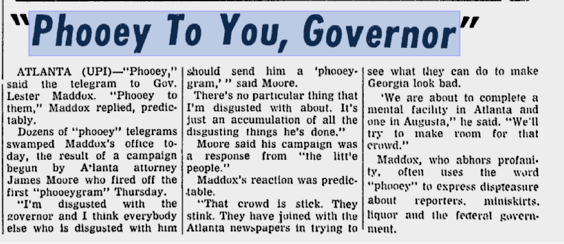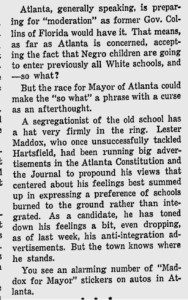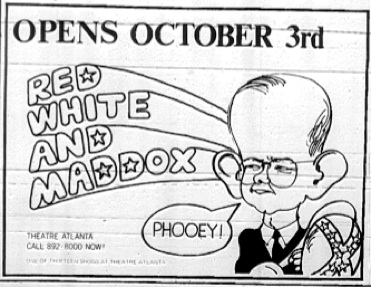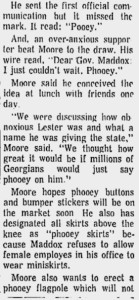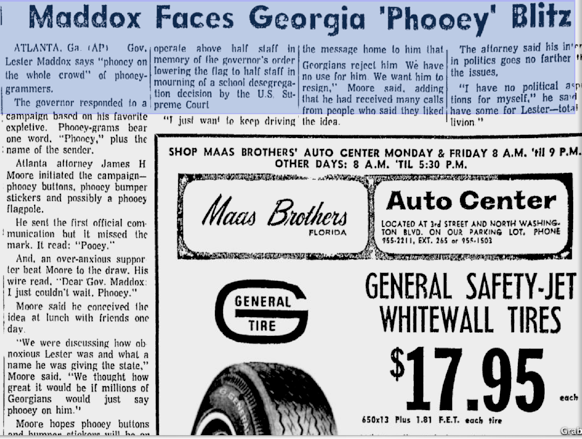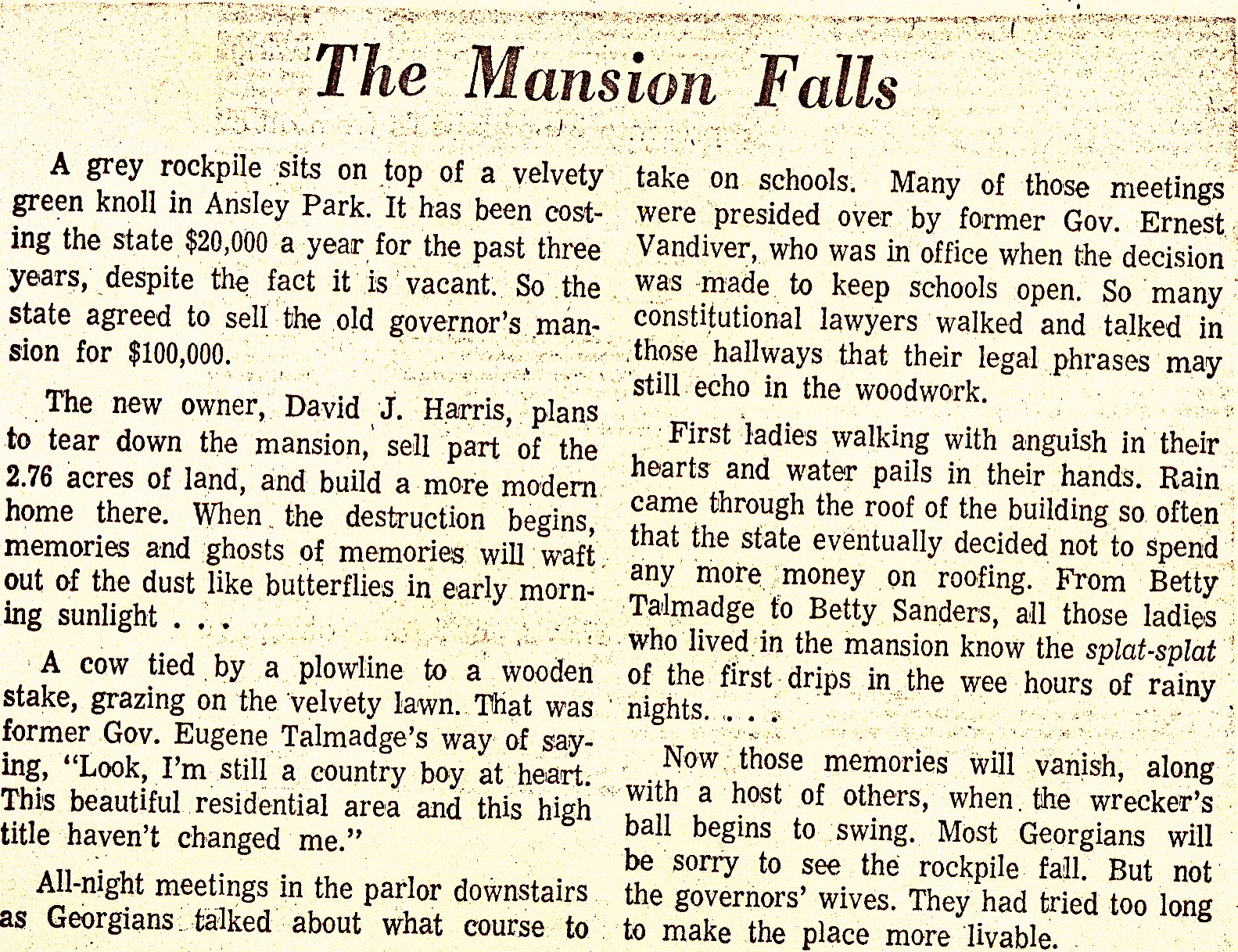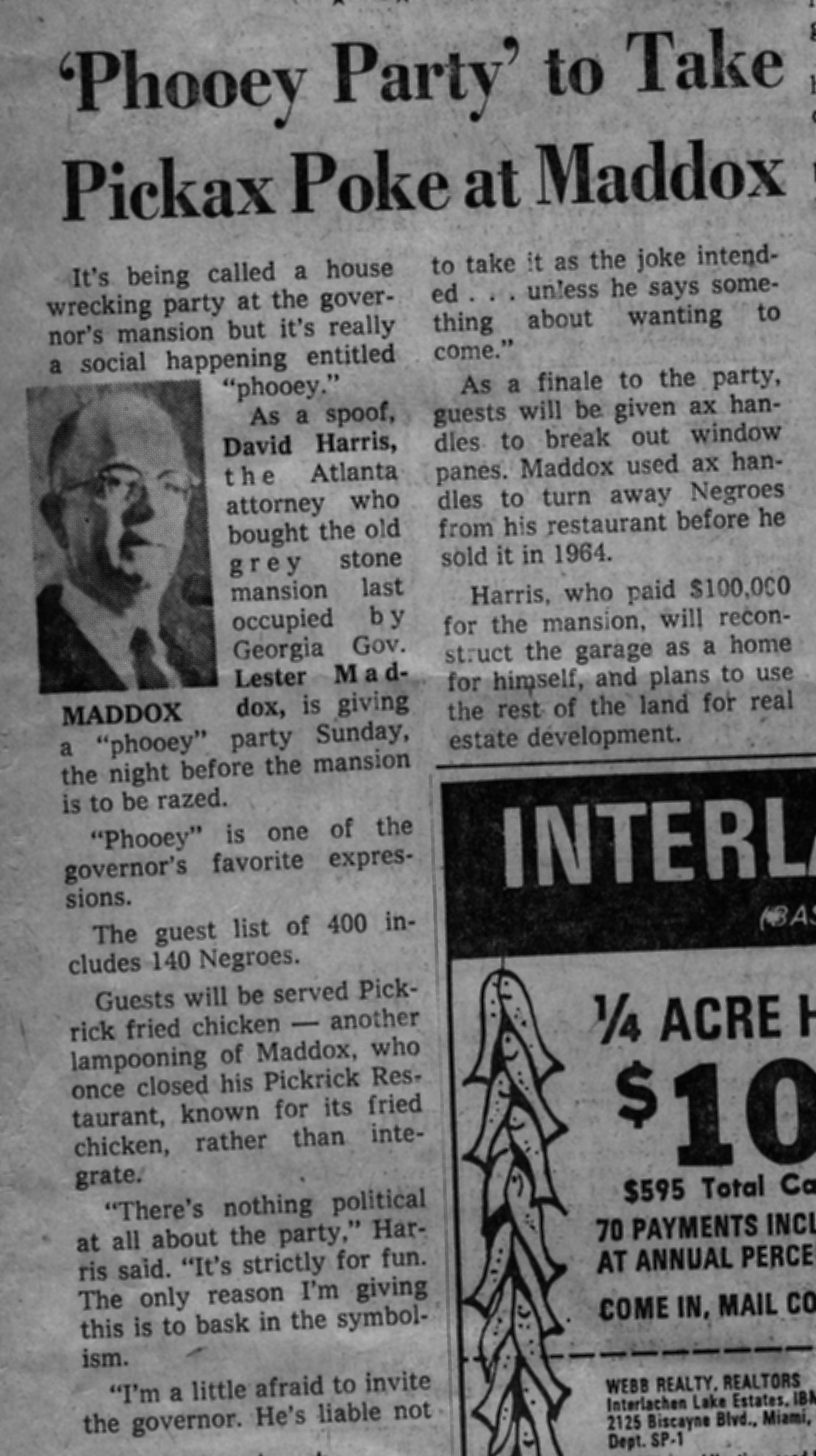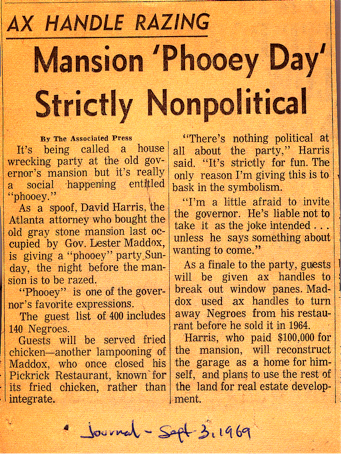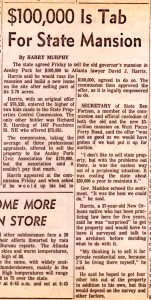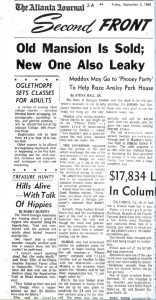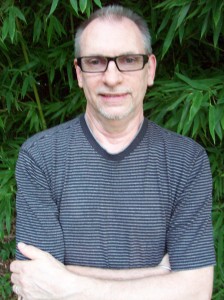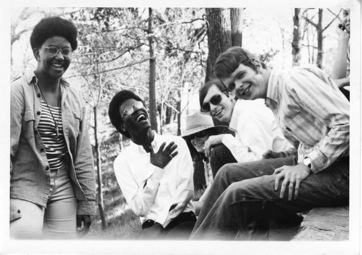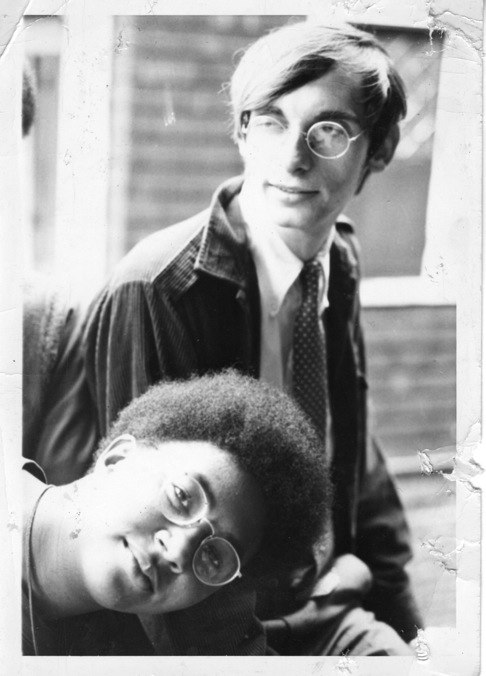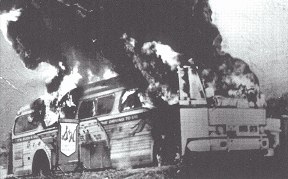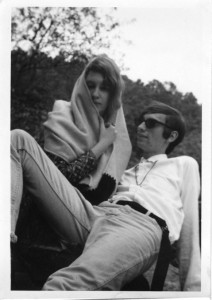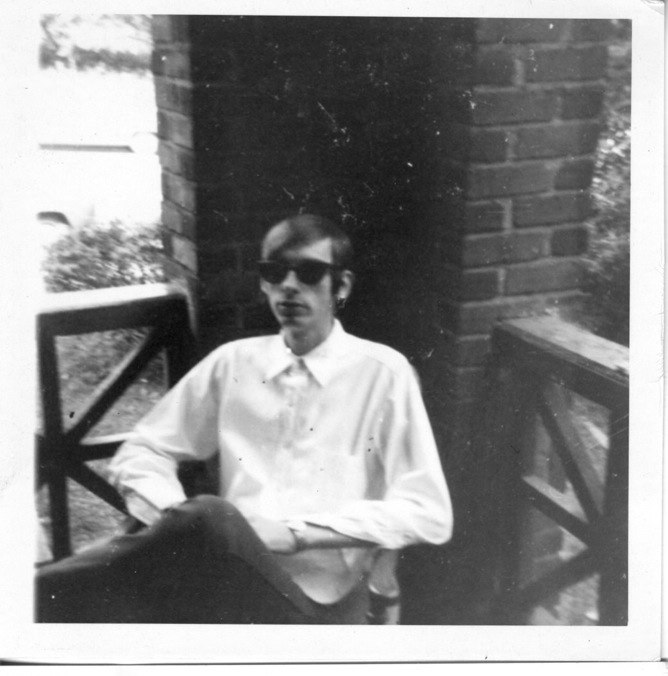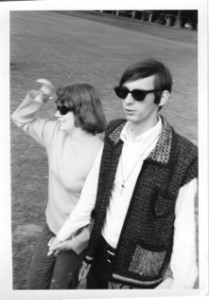Atlanta greets the world
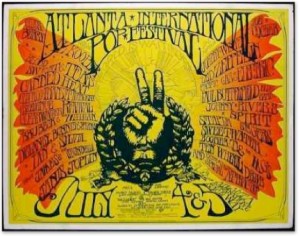
Philip Rauls 40th anniversary essay
Appropriately enough this event was at a stock car track. No trees inside, no shade, Fourth of July in Georgia. A drought of rain and grass made it miserable … except for the music.

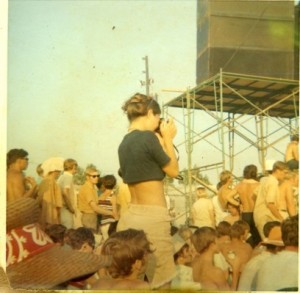
Here is Mz Toots taking pictures of Sweetwater, a great band featuring a cello. The interplay between the two main vocalists, Nanci Nevins and the flute playing Albert Moore, were magical and full of love like a jazzed out Jefferson Airplane. We really had like Sweetwater at Miami Pop and now they were even better.
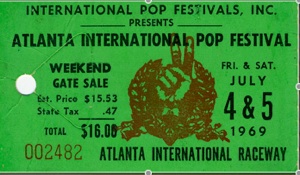
Performers included Janis Joplin, Johnny Winter, Chuck Berry, Blood, Sweat & Tears, Canned Heat, Spirit, Ten Wheel Drive, Joe Cocker, Chicago Transit Authority, Creedence Clearwater Revival, Grand Funk Railroad, Sweetwater, Al Kooper, Pacific Gas & Electric and Led Zeppelin.
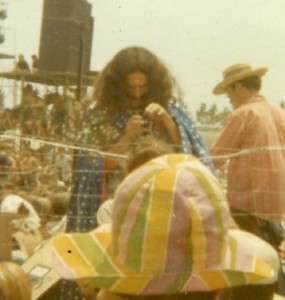
In those days there were unique individuals you seemed to see everywhere. One we called Starman when we saw him selling metal twirling star toys at the Miami Pop Festival. He was also allowed on stage .
Local favorites The Allman Brothers had been signed by a phony promoter and were not allowed inside when they arrived. Yet later the announcer said a band driving by on I-75 had been stopped with the traffic, so they had asked to play. They were Grand Funk Railroad.

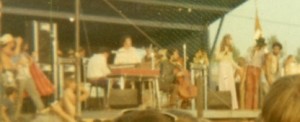
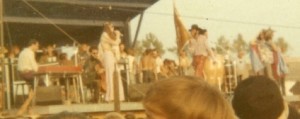
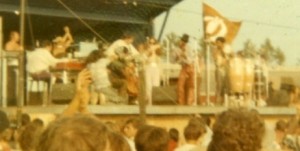

Atlanta’s hip community had been introduced to the world. A young hippie lady swirled by and gave us a piece of paper saying, “Come to Piedmont Park Monday at 1 PM” Little did we know what the next day would hold…TheGrateful Dead! (click)
Memories from viewers—->
I cannot believe that it’s been 40 years! Where did the time go? And, am I really THAT old? At any rate, here’s my input!
My brother, Emmett, and several friends decided that we had to go to the festival. Tickets were available at Atlantis Rising for (as I recall) $12 for the whole weekend. We got our tickets, packed up my 1961 Plymouth Valiant and headed to the Atlanta Raceway. We knew we were camping so we made bedrolls – didn’t have a tent just slept near or in the car. We were fortunate enough to find a place to park in the shade. One morning a local farmer came through with a truck-load of watermelons he was hoping to sell to the hippies – unfortunately for him his truck was taken over and melons were flying! Someone in our group snagged one for our breakfast.
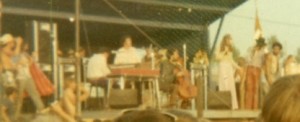
As we were enjoying a slightly warm just picked melon a guy came up and really wanted a slice. He traded a gram of hash for a slice of melon – my brother said “Brother, you can have all that’s left!”. After three days of fantastic music, pure love of one another, and getting sunburned, it was time to head home. My brother and friends wanted to leave before I did, so I found a friend who wanted to stay thru Janis Joplin – and I’m glad we did. We waded thru the trash and made it all the way to the stage. All I can say is, it was memorable!
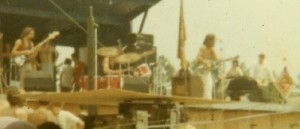
My brother and I also attended the festival in New Orleans over Labor Day Weekend the same year. Had to hitchhike home because our ride didn’t want to leave!
Sarah (Bell) Murphy Norfolk, VA
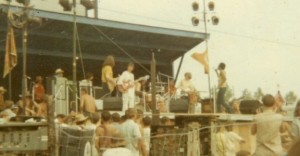
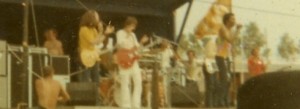
“Doing what you like is freedom. Liking what you do is happiness.”
The “First Atlanta Pop Festival” was originated in a meeting between myself, Chris Cowing (White Wolf), and Fred Logerquist, who we have since lost – God Bless His Soul. Alex Cooley and others were additional contributors after the fact. Actually Alex, who was the Manager of the Midnight Sun Restaurant invested $5000 along with his neighbor, David Cooper, later in the game. This is just to set the record straight. Briefly, the first meeting didn’t take place until February or maybe March of 1969. There had been a festival in Florida over Christmas and we said, “If it could happen there it can happen here.” The group ended up being 13 I believe. We moved pretty fast. Fred had connection to the Atlanta Raceway in Hampton.
The Piedmont show which actually 2 or 3 days after, Tuesday I believe was the result of politics. According to the Great speckled Bird, “How could we charge $$$ for music … even $13.50 a day.” we had to do something to appease the social uproar over our commercialism. Spirit, CTA, and Delaney and Bonnie stuck around for room and board. And the Dead played for travel, rooms and beer. So yes I was very involved in it as well as the rest of the team.
I remember Pigpen cracking two cases of beer, neatly arranging them on the balustrade around the pavilion, and calmly dosing each one with premium Owsley Acid. Everyone around the pavilion was glowing.
I would love to have a list of the people that attended the FREE concert in Piedmont Park after that Festival with Spirit, Chicago Transit Authority, Delaney and Bonnie and Friends (including Dave Mason and others), and THE GREATFUL DEAD. That was the seminal moment.- Robin Conant
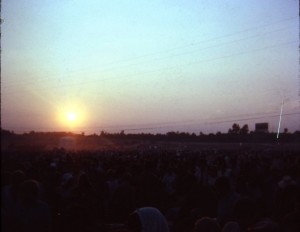
My brother was working onstage back then. I think he worked all the Florida Festivals and a lot of Miami rock shows. He called me and said I could have all the free tickets I wanted. I was 19 and just out of high school. All I had to do was bring my friends. Well, out of this whole town, about 140 miles from the Speedway, only three wanted to go.
When we got there, my brother had left four “all-access” passes ( I think they were called backstage passes at the time). We got to meet and talk with so many performers, it really was a blur, although I do remember talking with Janis Joplin (very distinctly).
We got there right as Dave Brubeck (with Thelonius Monk?) was playing. We were woefully short-handed on everything except wine and beer (very little food). All weekend we traded beer and wine for weed.
I remember going to look for food and seeing all these “No Hippies Allowed” signs. We were more like political Yippies than Hippies, but, lol, I don’t think the way we looked convinced the locals we were not Hippies (I wore my first leather headband that weekend). Finally, we found a place to eat and a store about thirty or forty miles away). Ended up missing Tommy James and the Shondells we were told.
The band I remember most was Johnny Winter. Credence Clearwater Revival put on a show that was good, but it seemed liked they played every song like it appeared on the record. I enjoyed Spirit and Canned Heat, mainly because there were sort of like legends to us. As a matter of fact, I really can’t recall a bad performer. Oh yea, the Staple Singers blew us away, and I really liked Booker T.
There was a pond and quite of few people were swimming naked.
Saturday, because of my brother, I got to read a couple of announcements on stage. That was kind of weird.
We heard about the Dead at Piedmont Park, but left Sunday for some reason.
At the SC/GA line on the way back, we pulled over into the rest area with four girls from the Festival ( I forgot how we flagged each other down). We swam a while in the lake, and they invited us to Charlottesville VA, but we went home, dazed and confused and never the same again.
Too bad the country became more repressive and everything just sort of faded away.- Joe from Greenville SC
attended the festival…loved all the people I met…everyone was sharing water melons …and their shade. camped out in peach orchid. swear I saw big bird walk by the van….It was very HOT there but the people were wonderful…wish I coul relive it over again. I was also on 14 street . Middle earth head shop & the Catacombs. Did a little typing on Speckled Bird. Wonder if anyone remembers me? I remember you. and love you. Jesus was at the Catacombs in 68. So very meek & sincere. (well, we tried…didn’t we!) TWIGS
Ohmigosh. I was there too. My boyfriend and a dozen others came from Miami. I don’t think we all had tickets, but that didn’t stop us from attending one great concert. It was HOT. PG&E played Wade in the Water (?) in the afternoon and water would have been good then… All the bands were fantastic, great music, and great memories. I came home broke, exhausted, and sunburned. Told my parents I stayed with a school friend over the weekend – HA.
We know “Starman” has Reverend Star and he was a regular at the love-ins and concerts in Miami at the time. billym
I was around to see Starman in the Miami area. I was told he was a UM student. At Atlanta a huge local cop was trying to direct traffic in the hot sun. Starman, with only a cloth diaper on prances up to him. The cop then went and sat down in the shade. Starman with his wand then did a great job of directing traffic Chefneon@myspace.com
I went to the concert & had a really great time. I befrended people with a Uhaul set up as a sales booth of posters & funstuff and slept a few short hours under their truck. I awoke to Creedence CW playing around 2am I think. Got up & went to the front wiht my can of Ranch Style Beans opened & shared them with too many people on the way to the front to see. I have some pics that I will dig up soon of the firetruck & waterparty etc. PEACE www.neonjohn.com
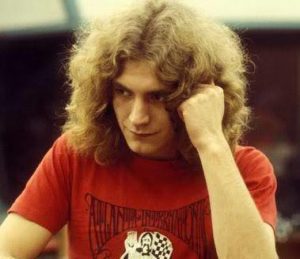
Atlanta newspaper reports on the festival.
Thanks to Tony Hayden for this picture of Janis backstage. He says, “my writer friend and i were up from n’orleans where we wrote/photographed for ‘the inarcane logus’ the local underground press. we got to stay backstage for the duration of the festival.
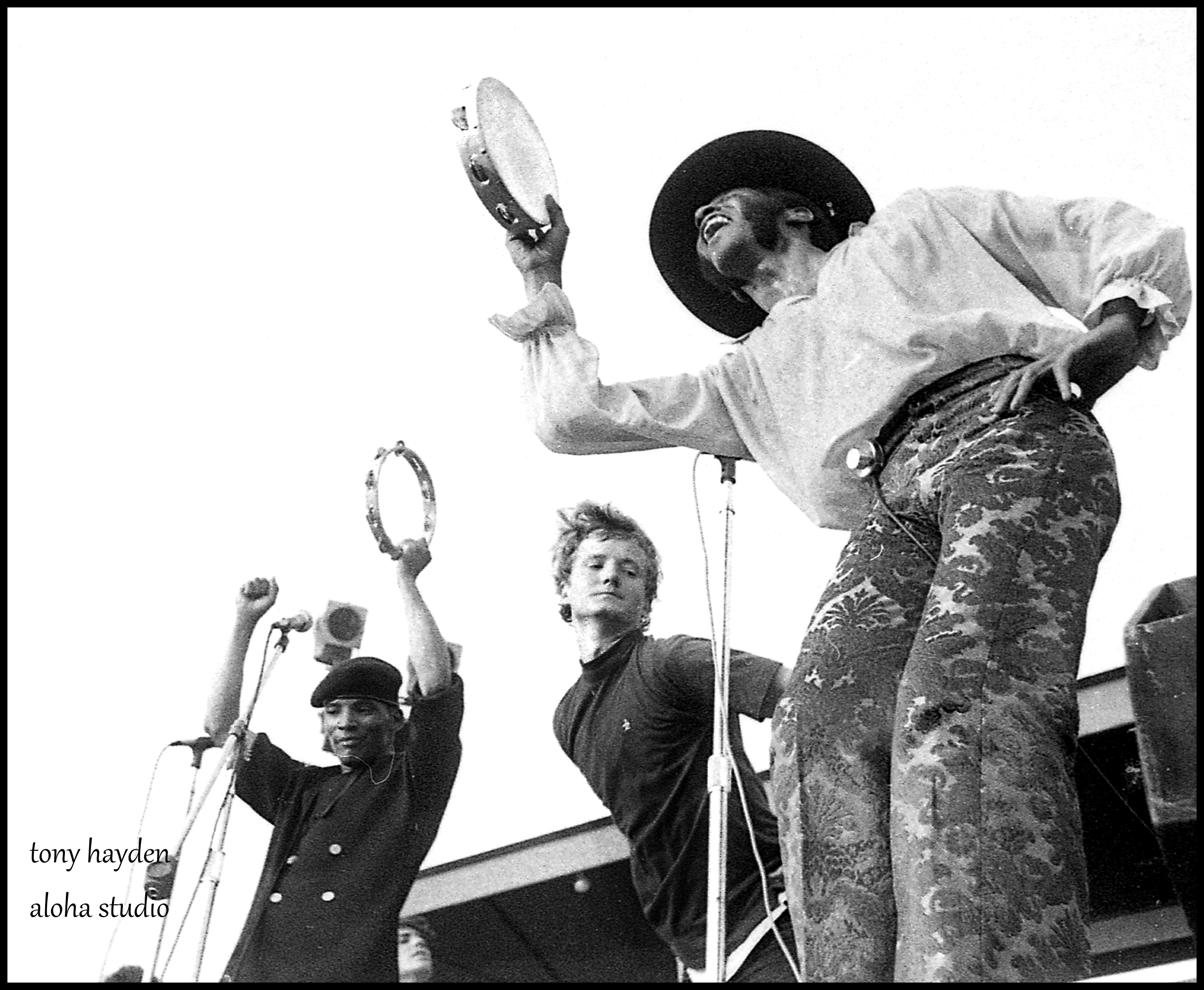
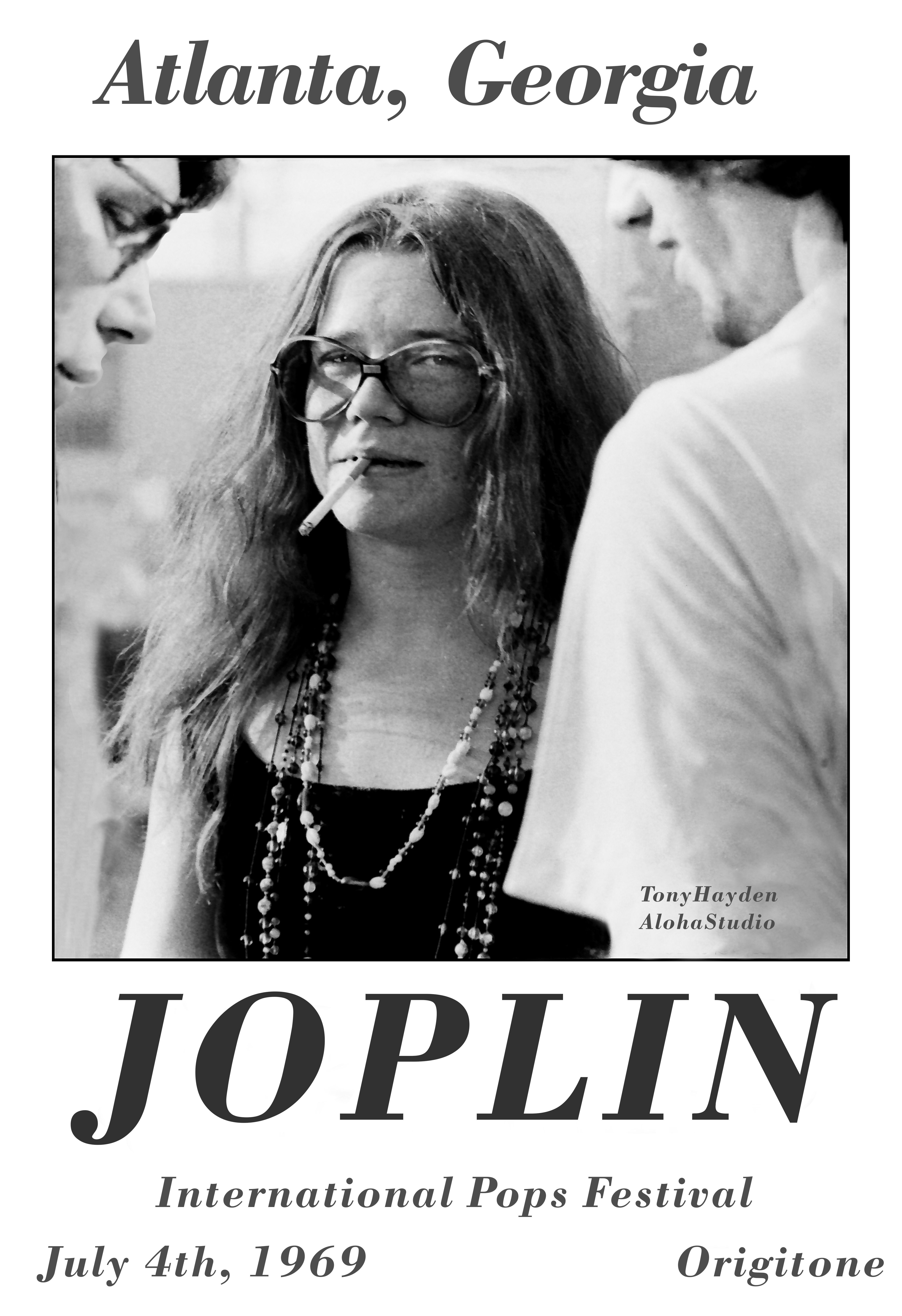 Thanks again to Tony Hayden for this picture of one of my favorites of the festival Sweetwater. The guy in the middle may be a fan who made it on stage.
Thanks again to Tony Hayden for this picture of one of my favorites of the festival Sweetwater. The guy in the middle may be a fan who made it on stage.